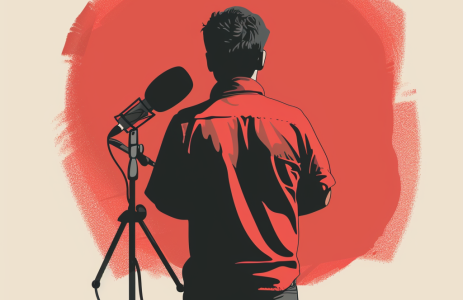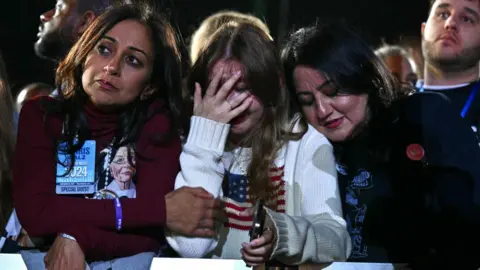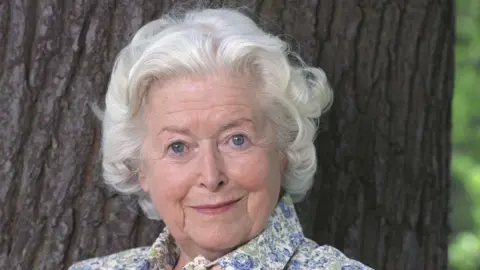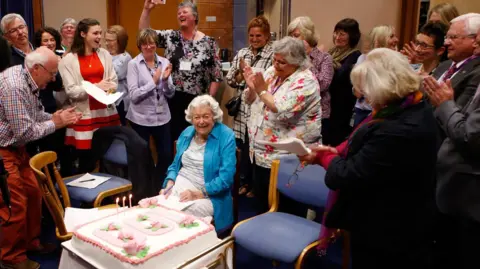Nearly 70% of Gaza war dead are women and children, UN says

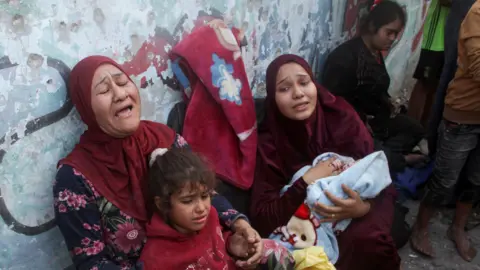 Reuters
ReutersThe UN's Human Rights Office has condemned the high number of civilians killed in the war in Gaza, saying its analysis shows close to 70% of verified victims over a six-month period were women and children.
The agency said the high number was largely due to Israel's use of weapons with wide-area effects in densely populated areas, although some deaths may have been the result of errant projectiles by Palestinian armed groups.
The report said it found "unprecedented" levels of international law violations, raising concerns about "war crimes and other possible atrocity crimes".
Israel has in the past said it targets Hamas and takes steps to mitigate risk to civilians by using precise munitions.
The BBC contacted the Israel Defense Forces (IDF) for comment in response to Friday's report.
The UN agency said it verified the details of 8,119 people killed in Gaza from November 2023 to April 2024.
Its analysis found around 44% of verified victims were children and 26% women. The ages most represented among the dead were five to nine-year-olds.
About 80% of victims were killed in residential buildings or similar housing, the agency added.
The report said the data indicates "an apparent indifference to the death of civilians and the impact of the means and methods of warfare".
Gaza's Hamas-run health ministry, whose figures the UN sees as reliable, has reported a death toll of more than 43,300 people over the past 13 months. Many more bodies are believed to remain under the rubble of bombarded buildings.
The health ministry said it obtained full demographic data for a majority of those killed and reported that children account for one in three of that number.
UN Human Rights Chief Volker Türk said in a statement that "this unprecedented level of killing, and injury of civilians is a direct consequence of the failure to comply with fundamental principles of international humanitarian law".
He cited the laws of distinction, which requires warring parties to distinguish between combatants and civilians, proportionality, which prohibits attacks where harm to civilians outweighs military advantage, and precautions in attacks.
Türk called for a "due reckoning with respect to the allegations of serious violations of international law".
The IDF has previously told the BBC in response to criticism that it "will continue to act, as it always has done, according to international law".

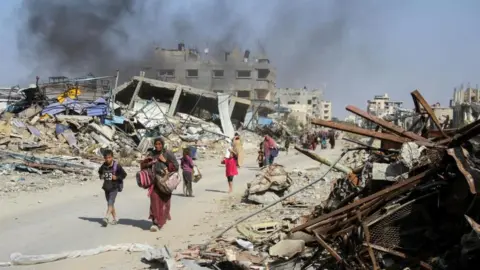 Reuters
ReutersThe report also said the way the warring parties have conducted the conflict in Gaza has "caused horrific human suffering".
The UN said Palestinian armed groups have waged war from densely-populated areas and indiscriminately used projectiles, likely contributing to the death toll, while the IDF has destroyed civilian infrastructure and "left many of those alive, injured, displaced and starving, without access to adequate water, food or healthcare".
The situation is worst in north Gaza, which aid groups say has been under siege since early October when Israel launched a new ground offensive against Hamas.
The UN said no food aid entered the north during the first two weeks of October.
This prompted the US to issue an ultimatum to Israel to increase aid by 12 November or risk losing some military support.
Jan Egeland, the head of aid organisation Norwegian Refugee Council, told the BBC on Friday that he saw "devastation, despair, beyond belief" on a recent visit to Gaza.
"There is hardly a building that is not damaged. And large areas looked like Stalingrad after the Second World War. You cannot fathom how intense this indiscriminate bombing has been on this trapped population," he said.
"It's evident that it is first and foremost children and women who are paying a price for this senseless war," he added.
Israel launched its current military offensive in Gaza after Hamas' attack on 7 October 2023 that killed 1,200 people in Israel and took 251 hostages back to Gaza.

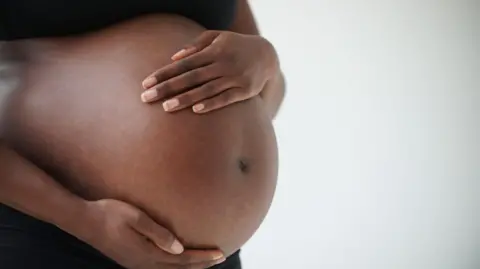




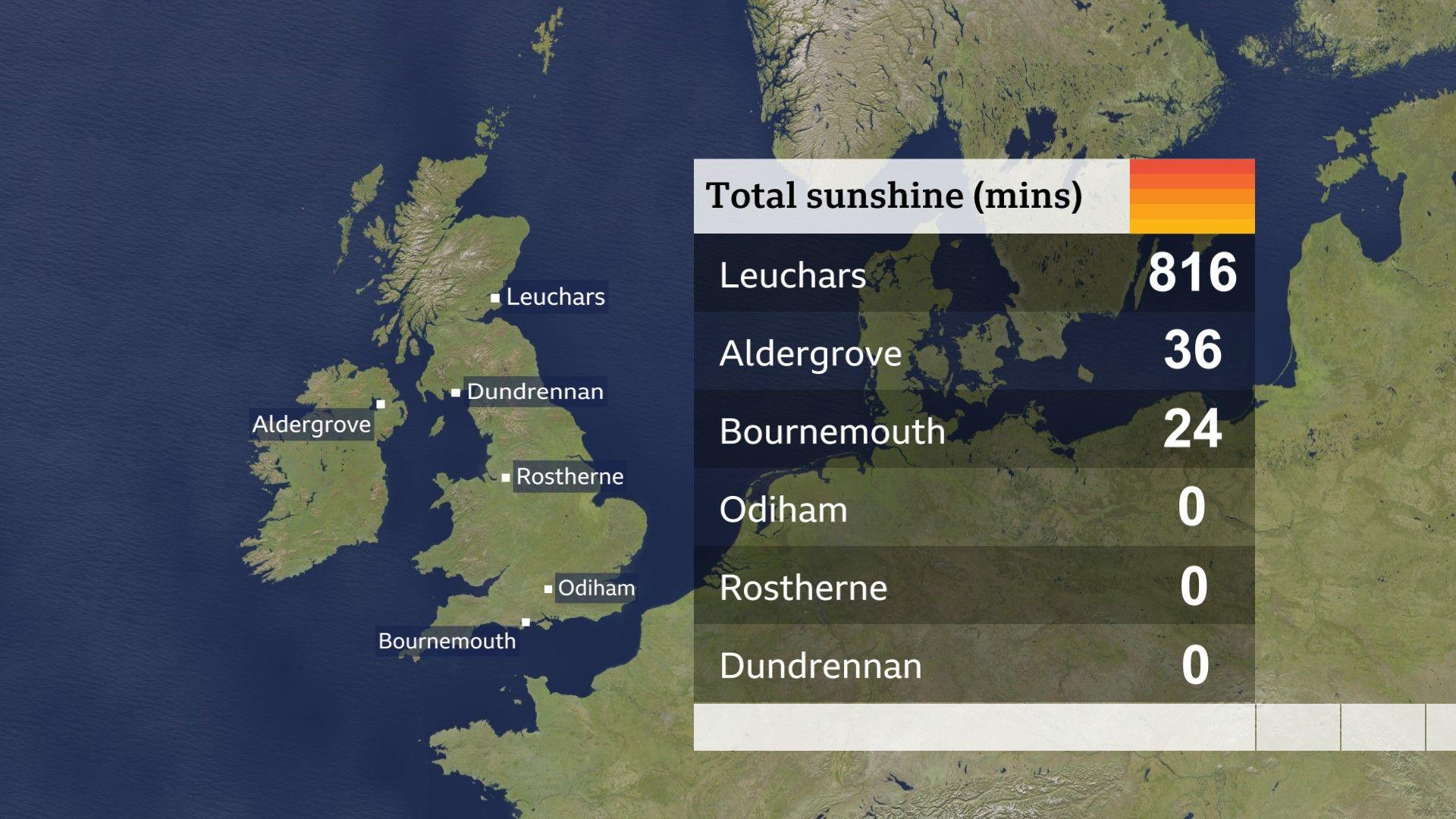

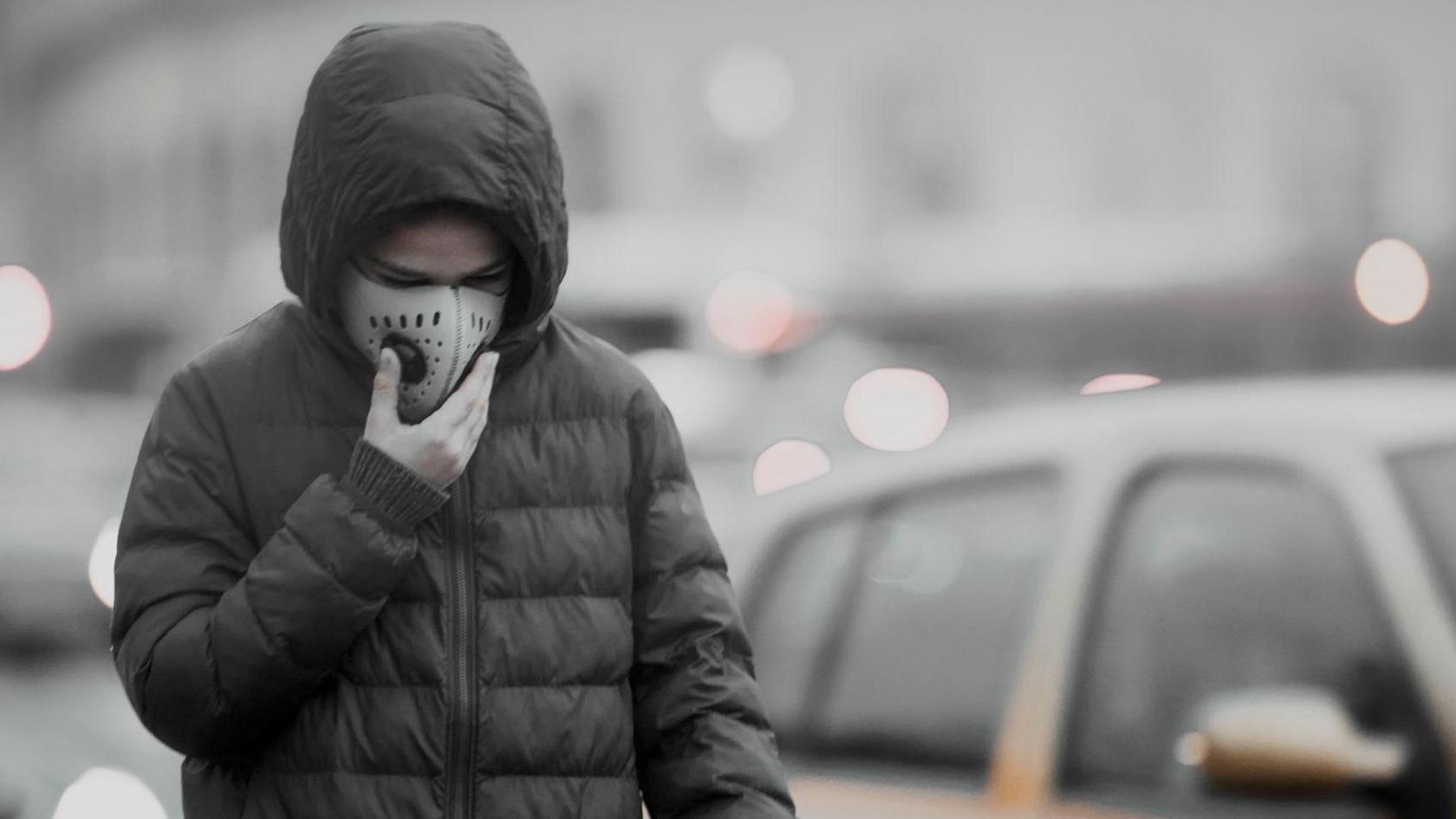



 中共一向对内吹嘘说,独立自主不受任何外国的影响。其实他们一贯都很重视外部关系对自身事务的影响。这次美国的选举再一次证明了这点。而且因为中共现在正面临内忧外患,重视的程度就更加明显。
中共一向对内吹嘘说,独立自主不受任何外国的影响。其实他们一贯都很重视外部关系对自身事务的影响。这次美国的选举再一次证明了这点。而且因为中共现在正面临内忧外患,重视的程度就更加明显。











